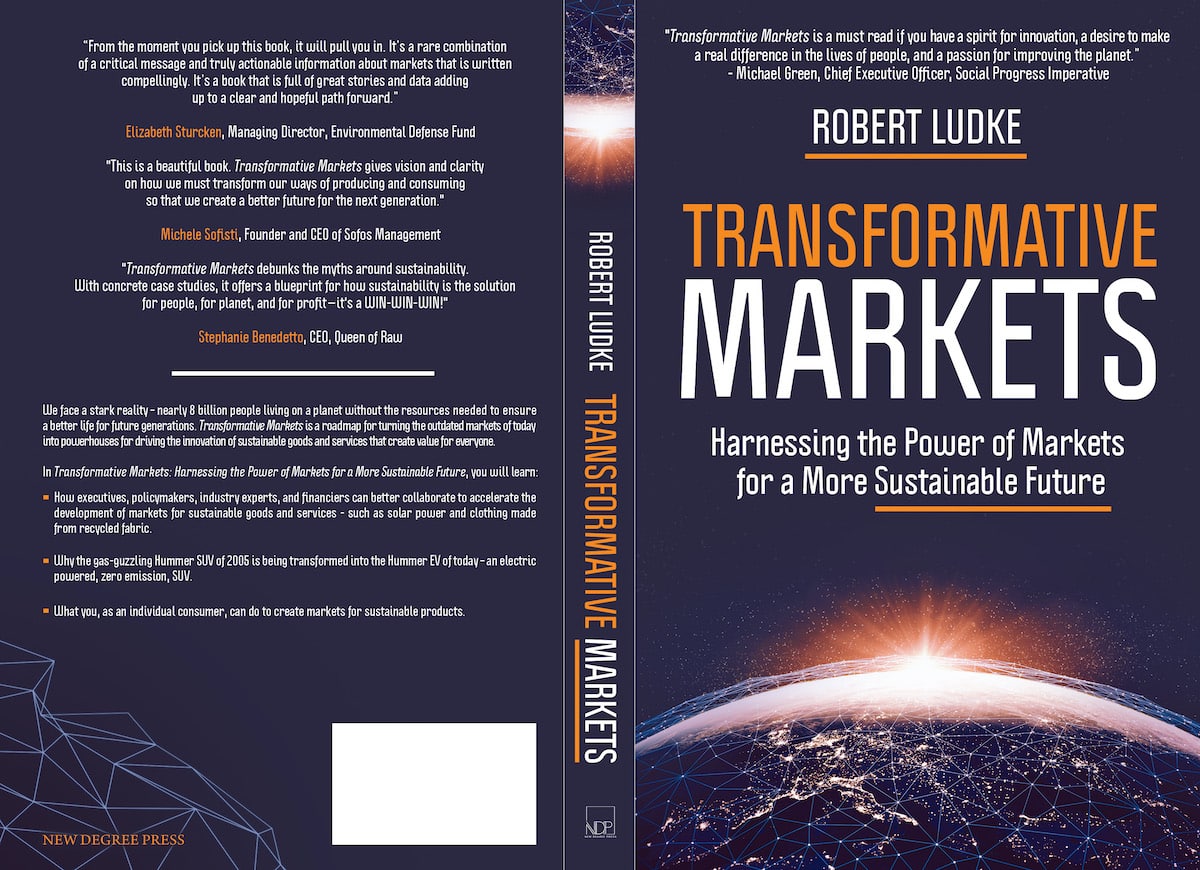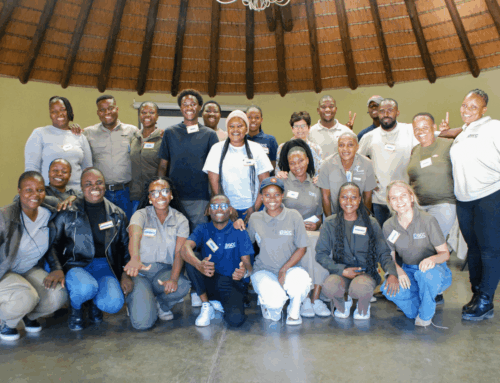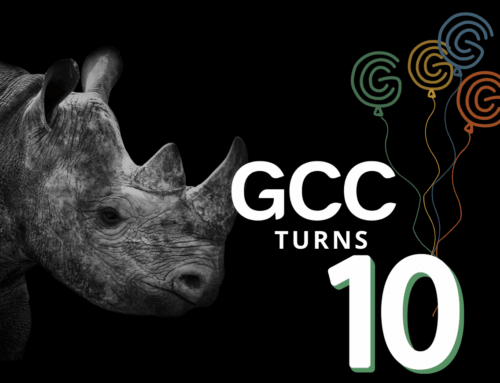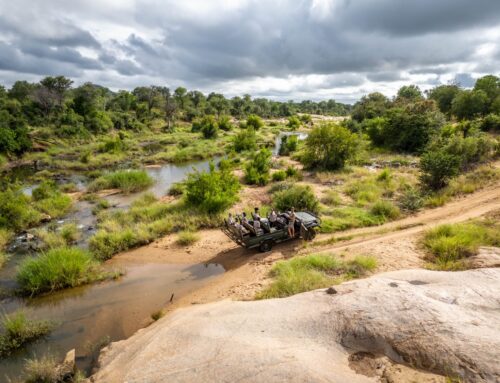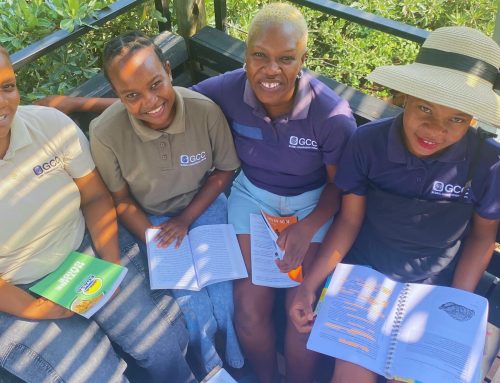This guest post was written by our great friend and Advisor to the GCC Board, Robert Ludke.
You probably did not pay much attention to July 29, 2019, unless it was your birthday, wedding anniversary, or the start of summer vacation. But July 29, 2019 was “Earth Overshoot Day” – the day each year when we use up our allowance of natural resources the Earth is able to regenerate and replenish in a year.
That means from July 30 to December 31, 2019, we lived on borrowed time. We are consuming, degrading, and polluting our resources – water, soil, and air, to name a few – faster than they can recover and regenerate to help sustain our lives. At our current pace, we need 1.6 Earths to support our demand for natural resources.
This is the equivalent of living beyond your paycheck and needing to dip into your long-term savings account by the middle of the year because you are out of money. Just as you will run out of money, society will run out of the most basic resources it needs to function.
Earth Overshoot Day 2020
Earth Overshoot Day 2020 falls on August 22 – almost a month later than Earth Overshoot Day 2019. However, that is not a cause for celebration. The reason Earth Overshoot Day is pushed back in 2020 is because of the unprecedented global economic slowdown that has occurred as a result of COVID-19.
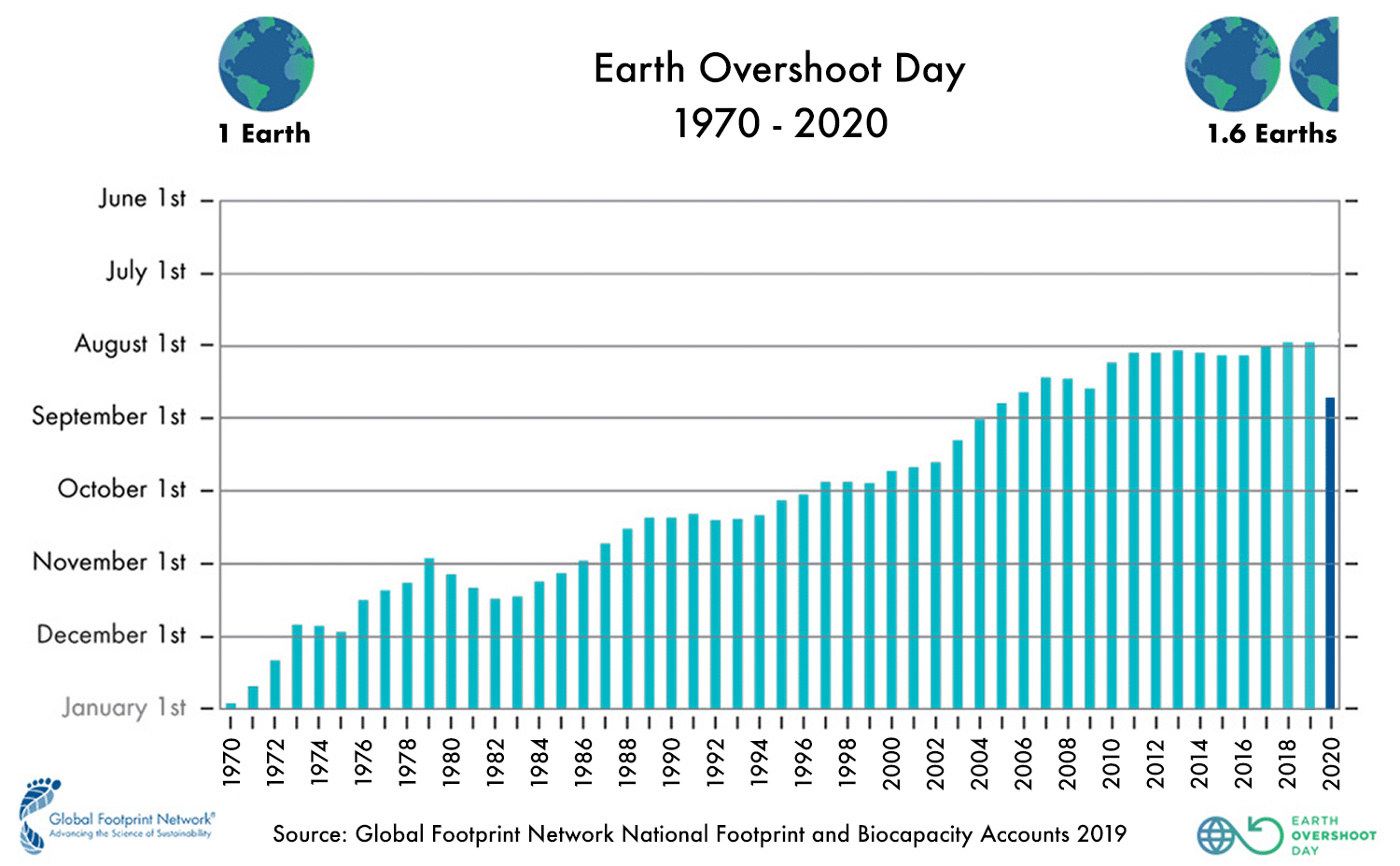
This chart makes two powerful points. First, the trend line of Earth Overshoot Day is moving in the wrong direction at an increasingly rapid pace. Second, the years in which we see any kind of plateau or decrease in the rate of growth is when there is a global economic recession – be it the early 1980s and 1990s, the “Great Recession” of 2008 or the economic crisis we face today.
In other words, the only time when there is even a slight slowdown in our rapacious consumption of the planet’s natural resources is when we face an economic calamity – which, in turn, puts hundreds of millions of people out of work and under extreme financial and emotional strain. Giving Mother Nature a break at the cost of increased human suffering is perhaps the ultimate lose-lose proposition.
What Can Be Done?
In Transformative Markets – my recently published book – I address the causes of Earth Overshoot Day and what we as individuals – both on our own and collectively – can do to address the unsustainable consumption of our natural resources. There are three steps all of us can take:
- Be Honest with Ourselves – once and for all, we must admit that the current way in which we live our lives is not sustainable. Our materialistic desires (such as buying a cheap t-shirt bought at a fast fashion outlet to be worn only a few times before being thrown away to leasing a gas guzzling SUV to acquiring the latest iPhone when our current one works just fine) means we are robbing our children of a better life because we value our present way of life more than their future.
- Demand More – we must hold those who make the things we buy accountable and demand that they be better stewards of the planet’s resources. Consumers must use their “power of the purse” to reward those companies pushing the envelope on innovation and responsible business practices while not giving their hard-earned money to those companies acting with a short-term mindset.
- Start Small…Go Big – one idea that stayed with me throughout Transformative Markets was how a small idea can scale into something much bigger with a lasting impact if people collaborate and share their knowledge, passion, and resources.
Ecosystem Entrepreneurs
GCC and I are putting the vision of starting small and going big into action through our development of the Ecosystem Entrepreneurs curriculum. This is our way of trying to hold back Earth Overshoot Day’s move across the calendar each year.
The Ecosystem Entrepreneur curriculum will be taught as part of the GCC Future Rangers program and target a diverse group of students in 10th – 12th grades. Students who have a genuine interest in entrepreneurship and are passionate about wildlife conservation will be invited to participate in the curriculum. Ecosystem Entrepreneurs will be educated on how to build and operate a business that adds value to society, restores ecosystem health, and generates a profit.
As a commitment to scaling the vision and goals of the program, GCC is making all materials developed as part of Ecosystem Entrepreneurs available to the public in the hopes that entrepreneurs, educators, students, and community leaders around the world can apply the learnings to create similar programs.
If you are an entrepreneur and has a passion for balancing building a thriving business with promoting the health of ecosystems, please reach out to us. Along with looking for mentors to the students, we will welcome your thoughts and insights in creating a curriculum that will provide lasting value for the lives of students in South Africa and around the world.
Robert further explores these topics as well as the urgent global need to create sustainable markets and economic systems in his new book Transformative Markets, now available on Amazon. All proceeds from this sale of this book will directly fund the development of a specialized learning track in GCC’s Future Rangers curriculum – “Ecosystem Entrepreneurship” – focused on teaching students to build businesses and communities that balance sustainable economic development with ecosystem preservation.
